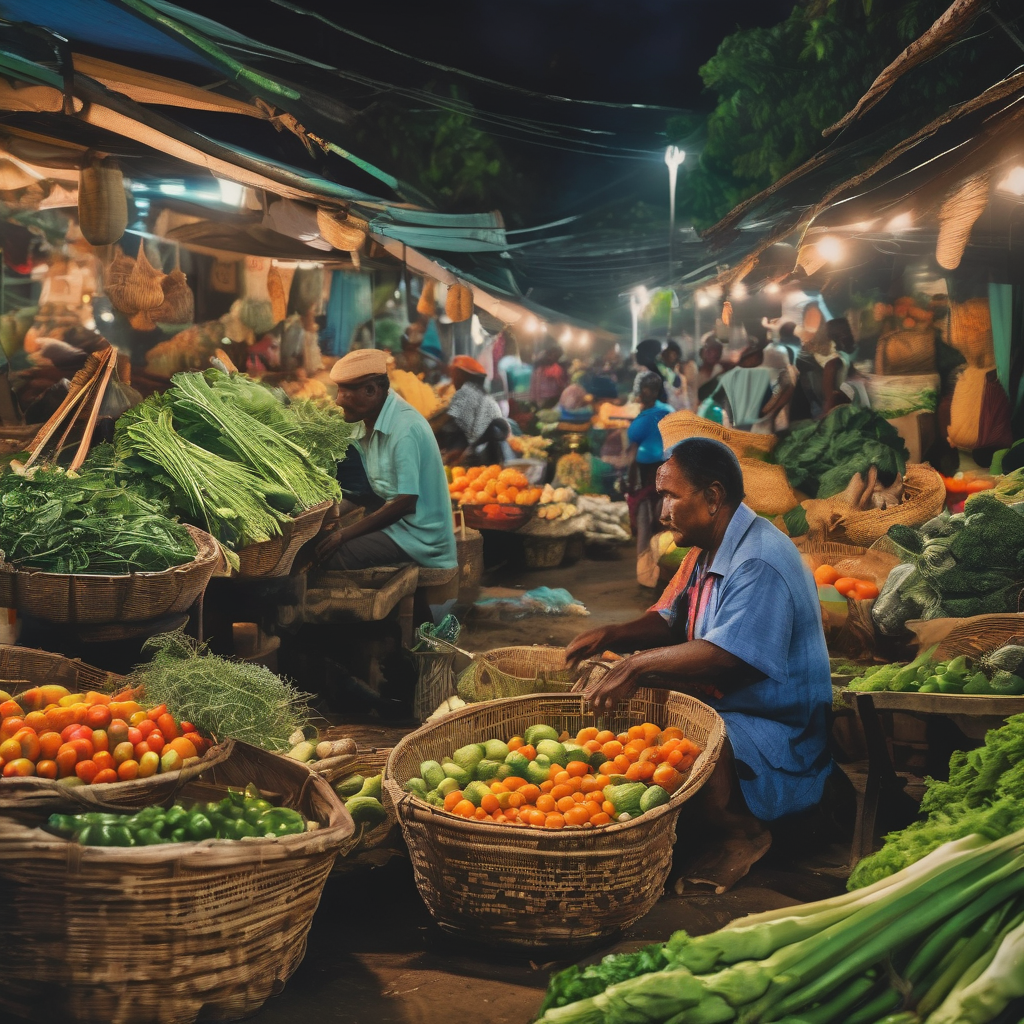In the quiet village of Sawanikula, the activity of local women farmers comes alive at midnight as they prepare for their essential journey to the Suva market. Loading bundles of dalo and yaqona into a packed truck, these women embark on a trip critical to their families’ livelihoods, serving as a testament to their resilience and dedication. Though often arduous, this routine has become a key part of their lives, underpinning their financial stability.
Mariana Rerekula, a seasoned farmer at 42, has committed over 20 years to her agricultural work in Sawanikula. She began making regular trips to Suva just this year but faces the same challenges as her predecessors. “Sometimes we don’t even sleep waiting for a ride,” she recounted, highlighting the difficulties they endure. The midnight carrier, often overcrowded, turns the journey into a test of endurance and patience. Upon arrival at the market, competition for limited selling spots can create tension among vendors.
The scope of their work extends far beyond the time spent at the market. Mariana and her family rely heavily on their farm, where they grow a variety of crops including yaqona, dalo, cassava, and vudi. The cultivation demands incredible patience; yaqona can take up to six years to mature, while dalo takes about eight months to a year. “Yaqona takes five or six years to grow; dalo takes about eight months to a year,” Mariana noted, emphasizing the dedication farming requires.
Transporting produce from their farms poses additional challenges. While horses are typically used for moving goods, farmers sometimes have to carry their harvest on foot for miles, particularly when transportation options are limited. Weather conditions also play a key role, as heavy rainfall can hinder their ability to cross rivers and delay market trips.
Once they arrive, the market presents its own set of hurdles. Wet weather can create muddy, uncomfortable selling environments, yet vendors are still required to pay for their selling space. “Sometimes when we come to the market and it’s raining, it’s very dirty, but we make do,” Mariana explained, illustrating the tenacity of those involved. Furthermore, the uncertainty of unsold produce can lead to the difficult decision of staying overnight in Suva, adding financial strain on families.
Nevertheless, Mariana’s resilience shines through as she reflects on the rewarding days when sales are promising. These moments bring relief, not just for her family, but also fulfill communal obligations within her village. Her experiences resonate with countless women across Fiji, who, despite the many obstacles they encounter—from transportation hindrances to stiff market competition—continue their work with unwavering determination and hope.
Women like Vani Sulua share similar challenges, conveying their resolve in overcoming the hurdles presented by nature, such as navigating the Wainimala River to access markets. Together, these female vendors form a tight-knit community, bound by shared responsibilities and a cooperative spirit, revealing the strength that can emerge from unity in the face of adversity. Their stories highlight a powerful narrative of perseverance, underscoring the significant role women play in bolstering the agricultural sector and supporting their families and communities.
